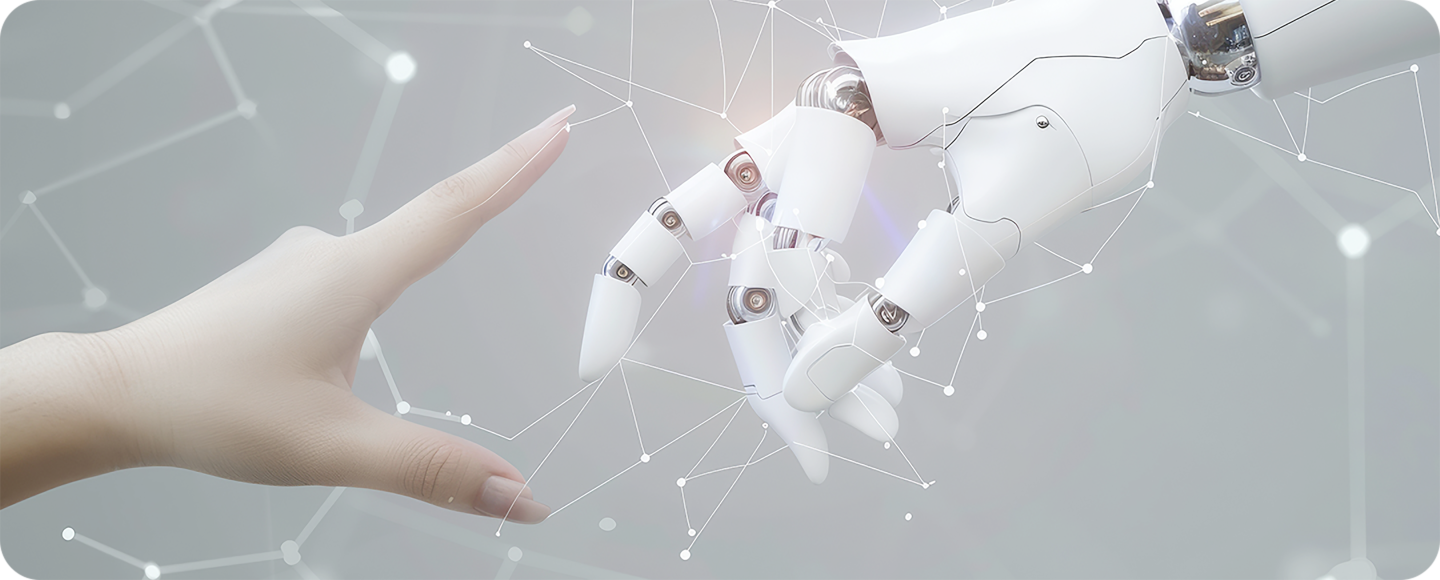Artificial Intelligence
Artificial Intelligence (AI) is the branch of computer science dedicated to creating systems and machines that can perform tasks requiring human intelligence. These tasks include learning, reasoning, problem-solving, perception, understanding natural language, and interacting with the environment. AI aims to simulate human cognitive abilities in machines, enabling them to automate complex processes, make decisions, and even learn from experience.
Components and Techniques of AI:
1.Machine Learning (ML):
ML algorithms enable machines to learn patterns from data and make predictions or decisions without being explicitly programmed. Types of ML include supervised learning (learning from labeled data), unsupervised learning (finding patterns in unlabeled data), and reinforcement learning (learning through trial and error).
2.Natural Language Processing (NLP):
NLP allows machines to understand and generate human language. It involves tasks such as speech recognition, language translation, sentiment analysis, and chatbots that can engage in human-like conversation.
3.Computer Vision:
Computer vision enables machines to interpret and understand the visual world. It includes tasks like object detection, image recognition, facial recognition, and video analysis.
4.Expert Systems:
Expert systems are AI systems designed to emulate the decision-making ability of a human expert in a specific domain. They use knowledge bases and inference engines to provide advice or make decisions.
5.Robotics:
AI plays a crucial role in robotics by enabling autonomous decision-making and control of robots. Applications range from industrial robots in manufacturing to autonomous vehicles and drones.

Artificial Intelligence (AI) has a wide range of applications across various fields due to its ability to automate tasks, make predictions, and solve complex problems.
1.Healthcare:
· Medical Imaging Analysis: AI is used for the interpretation of medical images such as MRI scans, X-rays, and pathology slides, aiding in the detection of diseases like cancer.
· Personalized Medicine: AI algorithms analyze patient data to recommend personalized treatment plans based on individual characteristics and medical history.
· Drug Discovery: AI accelerates drug discovery processes by predicting molecular interactions, identifying potential drug candidates, and optimizing drug compounds.
2.Finance:
· Algorithmic Trading: AI algorithms analyze market data to make trading decisions at high speeds, leveraging patterns and predictive analytics.
· Risk Assessment: AI models assess creditworthiness, detect fraud in financial transactions, and manage risks in investment portfolios.
· Customer Service: Chatbots powered by AI handle customer inquiries, provide assistance, and resolve issues efficiently.
3.Retail and E-commerce:
· Recommendation Systems: AI algorithms analyze customer preferences and behavior to recommend products, enhancing personalization and improving sales.
· Inventory Management: AI optimizes inventory levels by predicting demand, reducing overstock and stockouts.
· Supply Chain Optimization: AI improves supply chain efficiency through predictive analytics, demand forecasting, and logistics optimization.
4.Transportation:
· Autonomous Vehicles: AI powers self-driving cars and trucks, enabling them to perceive their environment, make decisions, and navigate safely.
· Traffic Management: AI algorithms optimize traffic flow, reduce congestion, and improve transportation infrastructure efficiency.
· Predictive Maintenance: AI predicts equipment failures in vehicles and infrastructure, minimizing downtime and improving maintenance efficiency.
5.Entertainment:
· Content Recommendation: AI recommends movies, music, articles, and products based on user preferences and behavior.
· Gaming: AI enhances gaming experiences through intelligent non-player character behavior, procedural content generation, and adaptive difficulty levels.
6.Manufacturing:
· Predictive Maintenance: AI monitors equipment conditions in real-time to predict and prevent failures, reducing downtime and maintenance costs.
· Quality Control: AI systems inspect and analyze products for defects, ensuring consistent quality in manufacturing processes.
7.Education:
· Personalized Learning: AI platforms adapt educational content and learning experiences based on individual student progress and learning styles.
· Automated Grading: AI automates the grading of assignments and assessments, providing immediate feedback to students and saving teachers time.
8.Cybersecurity:
· Threat Detection: AI identifies and responds to cybersecurity threats in real-time, enhancing network security and protecting sensitive data.
· Fraud Detection: AI algorithms analyze patterns and anomalies in transactions to detect fraudulent activities and prevent financial losses.






